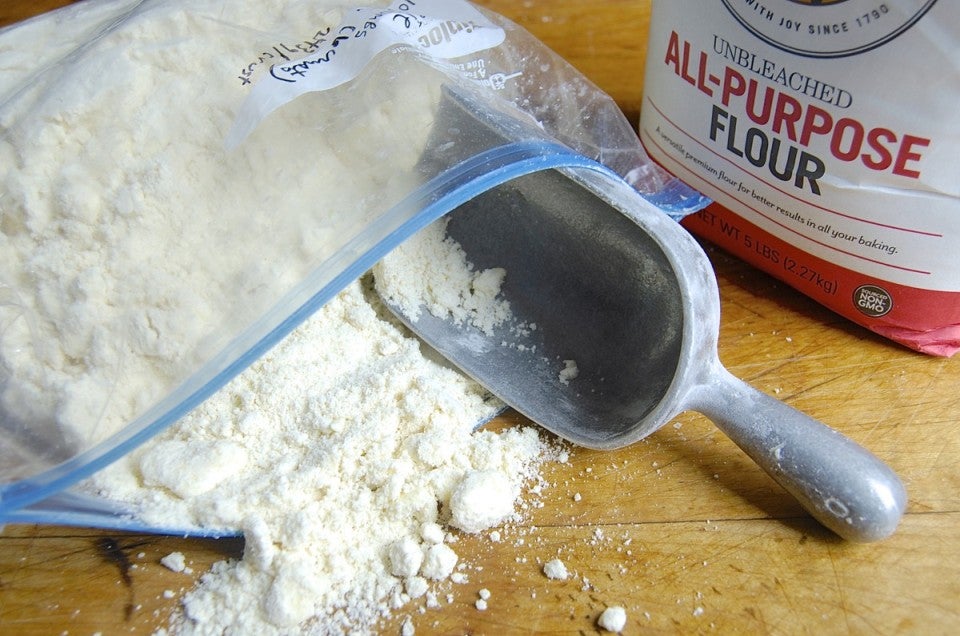


'Tis the season — to start thinking about holiday baking. Unfortunately, way too many of us stress over what should be a joyful process leading to happy results. So many recipes, so little time... This time of year, we're all searching for ways to get ahead of the curve. Enter: make-ahead pie crust.
I recently had lunch with a 90-something friend, a former home ec. teacher with whom I love to talk baking. As we enjoyed our dessert, something she said about pie captured my attention.
"Did you ever hear of pie crumbs?" she asked. I admitted I hadn't — aside from the obvious: the scraps of pie crust left on the plate after the slice is gone. "My mother used to mix flour and salt and lard together to make this crumbly mixture that she'd store in a crock in the cellar. She called them her pie crumbs. When she wanted to make a pie, she'd just scoop out a few handfuls, add water, and roll out her crust."
Hmmm... sounds like a good make-ahead solution for 100 years ago. But now that we have easy access to freezers, why not just make pie dough and freeze it in ready-to-roll disks? Two reasons:
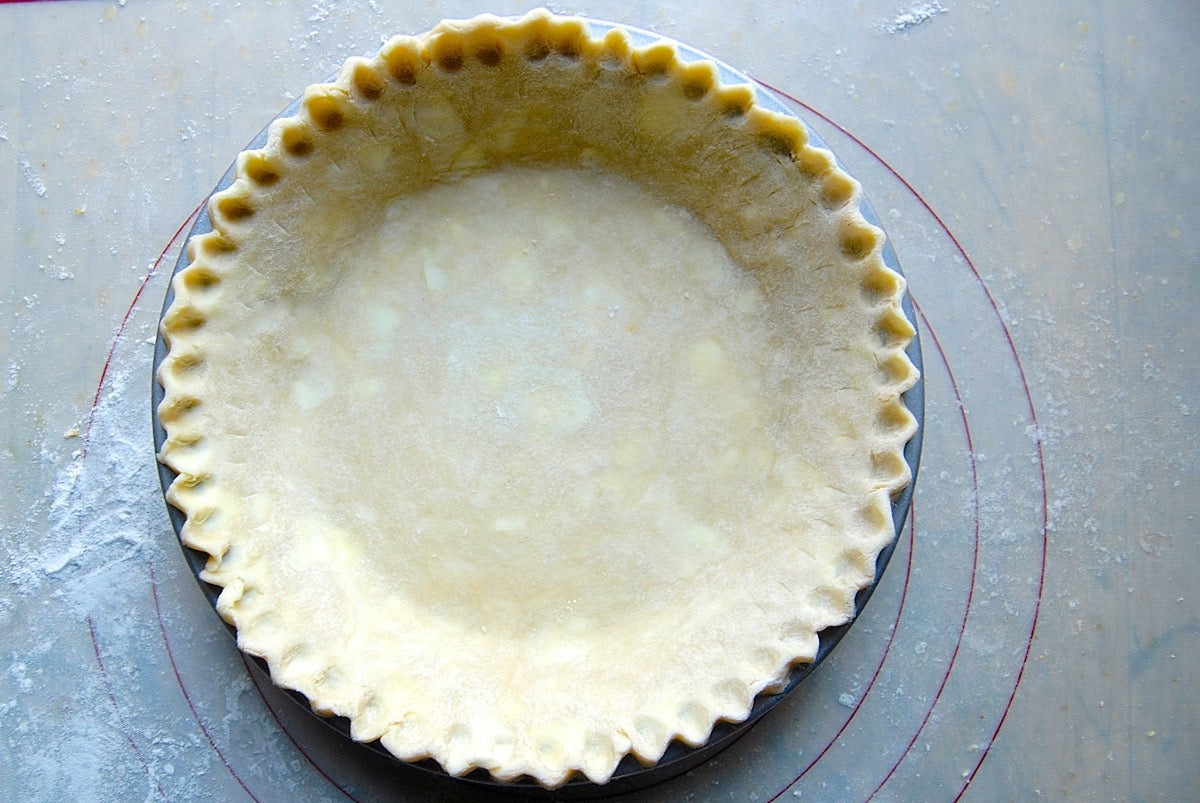
...from something good for a couple of little tarts to a crust for a deep-dish 10" pie. With frozen disks, you're looking at a standard single crust — not always exactly what you want.
Remove however much of the crumbly mixture you need from the freezer, and within 30 minutes the fat is soft enough that you can add water and roll out your crust. Compare that to the time it takes to thaw and roll a frozen disk of prepared crust.
From a quality standpoint, it's my opinion that pie crumbs might be more stable in the freezer than pie crust disks. Why? Because without the added water, no ice crystals form. Ice crystals can damage the flour/water matrix, leading to changes in its structure (which can then potentially lead to changes in your pie crust).
Oh, and one other reason I like pie crumbs: if my friend's mother used them, they were probably a 19th-century kitchen time-saver. And I love the feeling of preserving and carrying forward our American baking traditions — even something as simple as a shortcut for pie crust.
I've decided to make a triple batch of our Classic Double Pie Crust recipe, which will yield enough crumbs to make the equivalent of six single crusts.
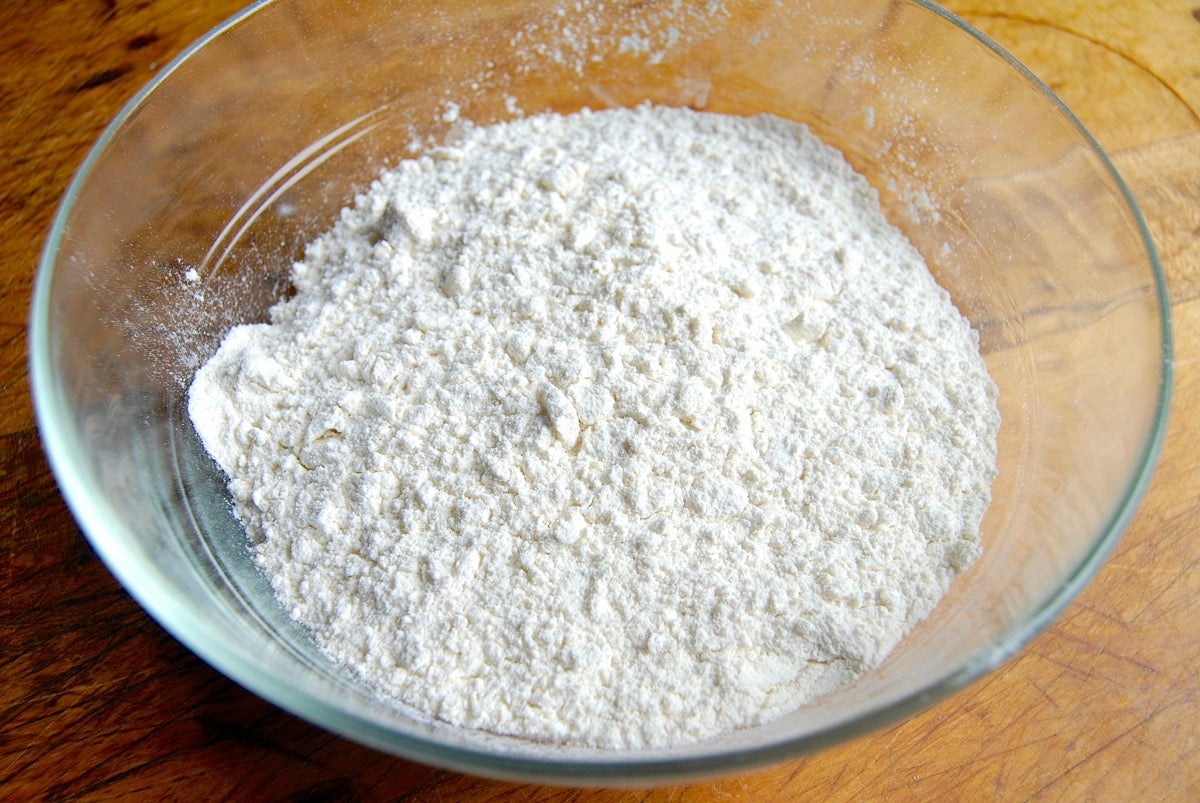
Mix thoroughly, so that the shortening is pretty much fully blended into the flour.
I'm deliberately not giving you specific amounts of ingredients here; you can apply this method to any pie crust recipe you choose.
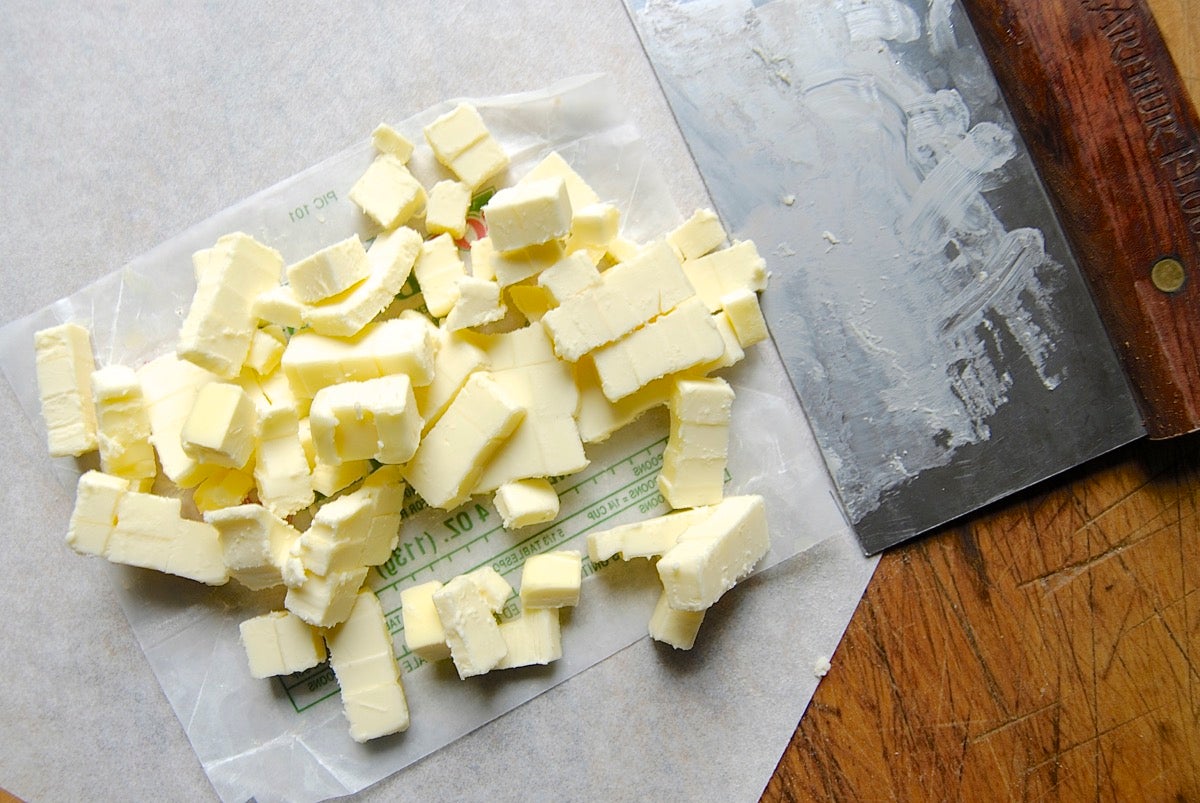
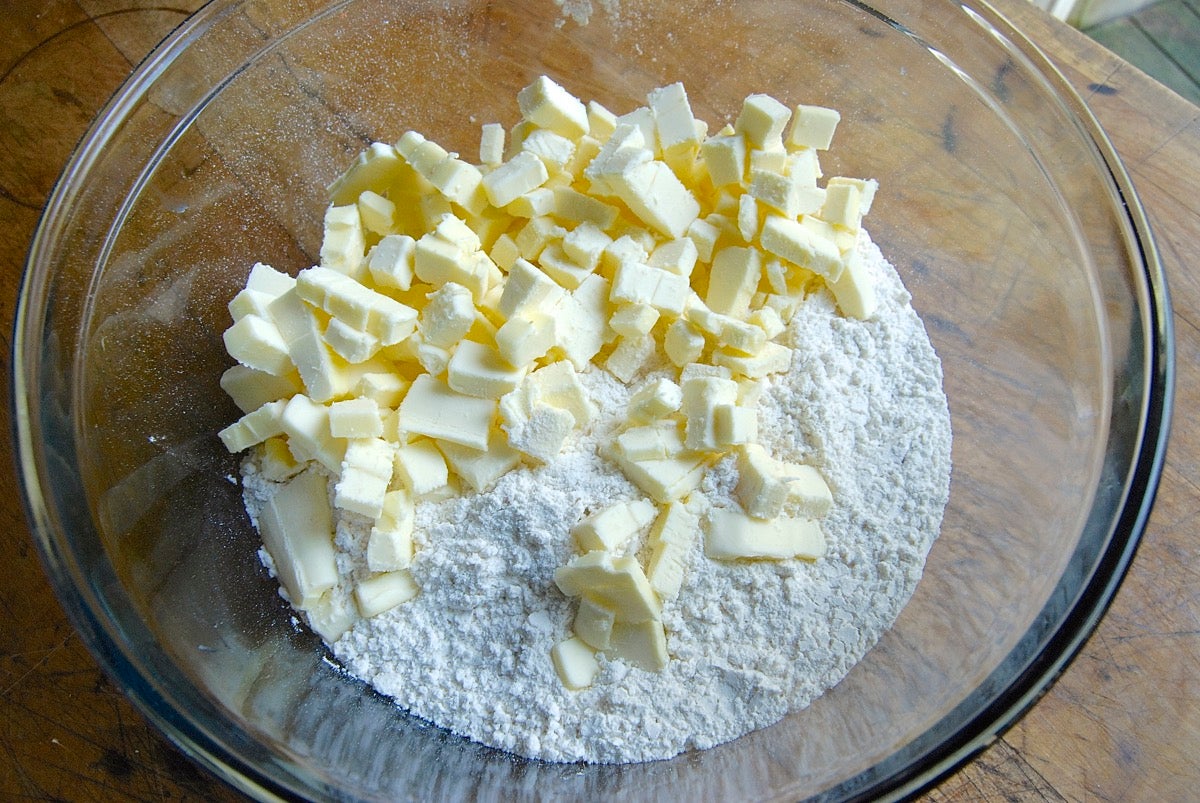
A bench knife is useful here.
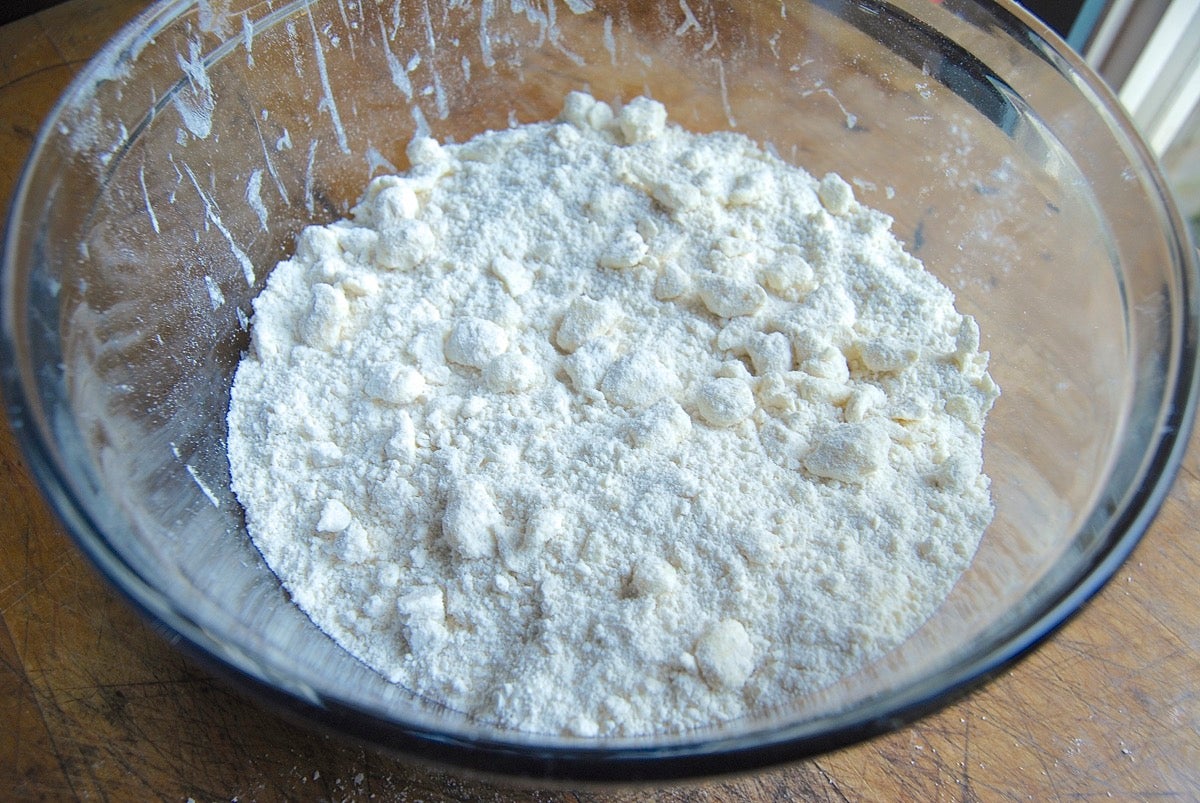
Mix until some of the butter has broken down, and some has remained in larger chunks. A stand mixer works well here, as does a pastry blender.
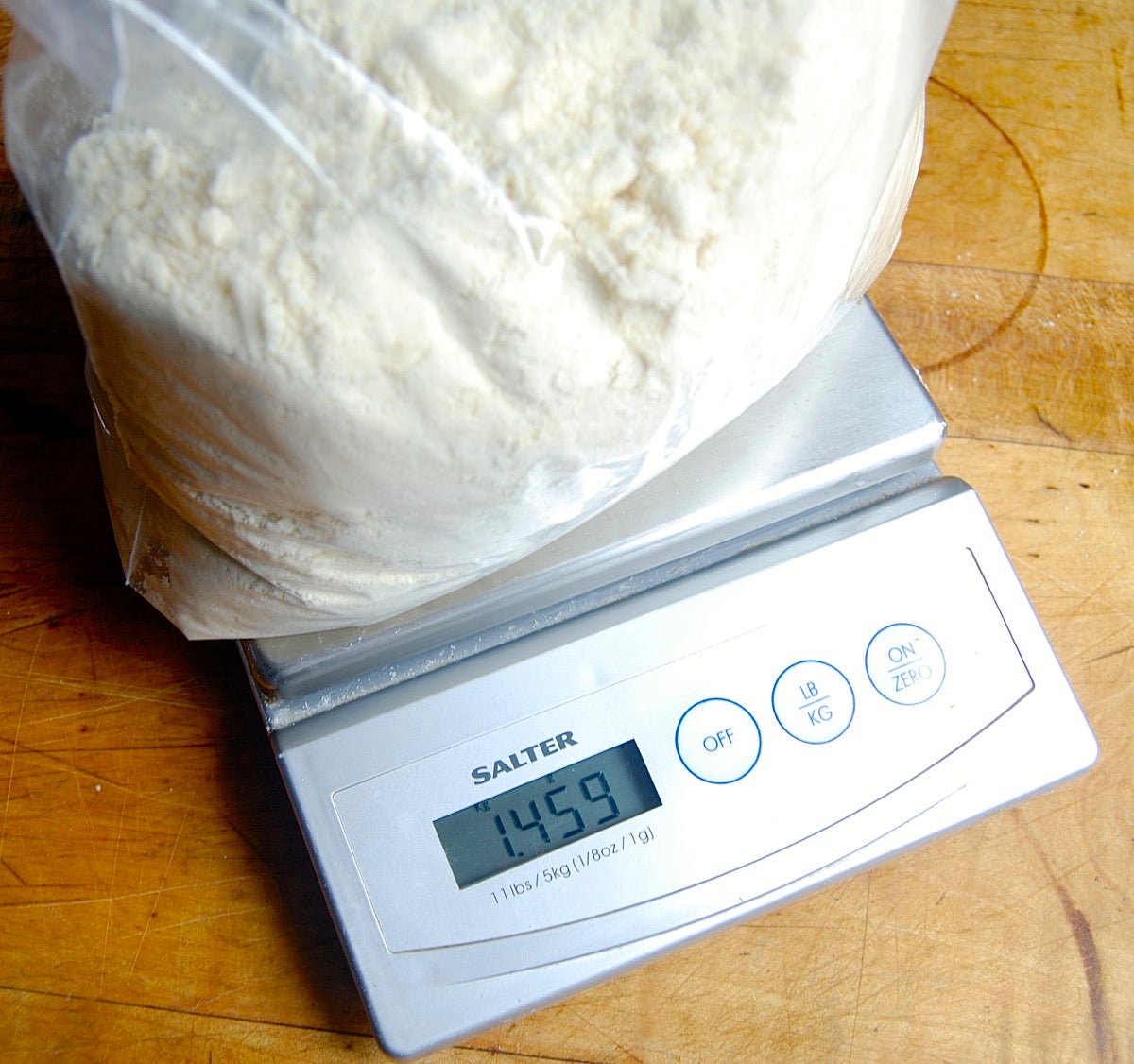
I'm weighing in grams here, since it's so much easier to do the division. Remember, this is enough for six crusts, so I'm going to note how many grams of pie crumbs I'll need to make a single crust: 1459g divided by six is 243g.
If you don't have a scale, measure the crumbs' volume, and divide by six to figure out how many cups it takes to make a single crust. For either method, weight or volume, a single crust will be your reference point.
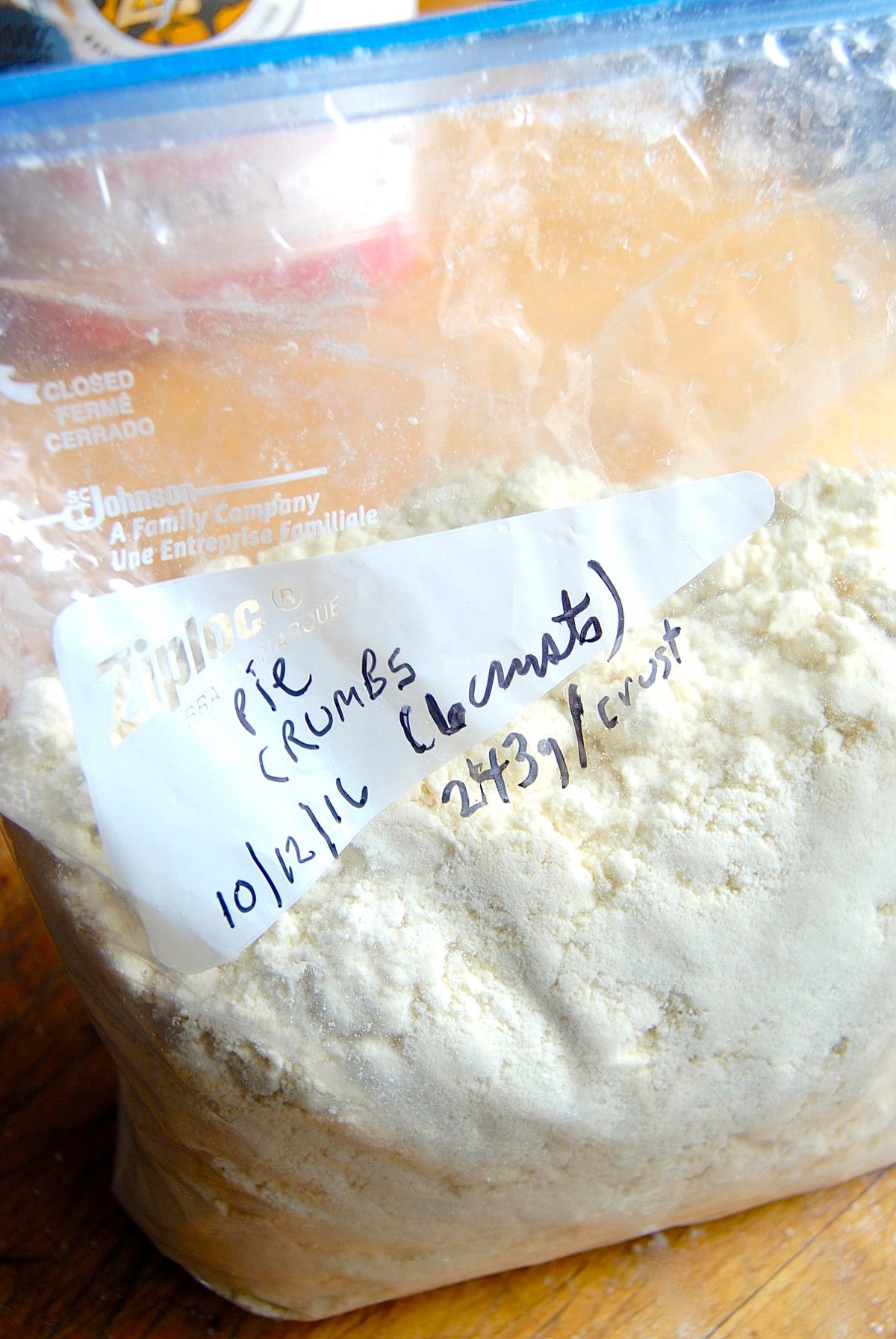
Because you think you'll remember what they are, but hey...
Stick the bag in the freezer, preferably in the back where it won't be subject to warm air wafting over it each time you open the freezer door.
When you're ready to make pie —
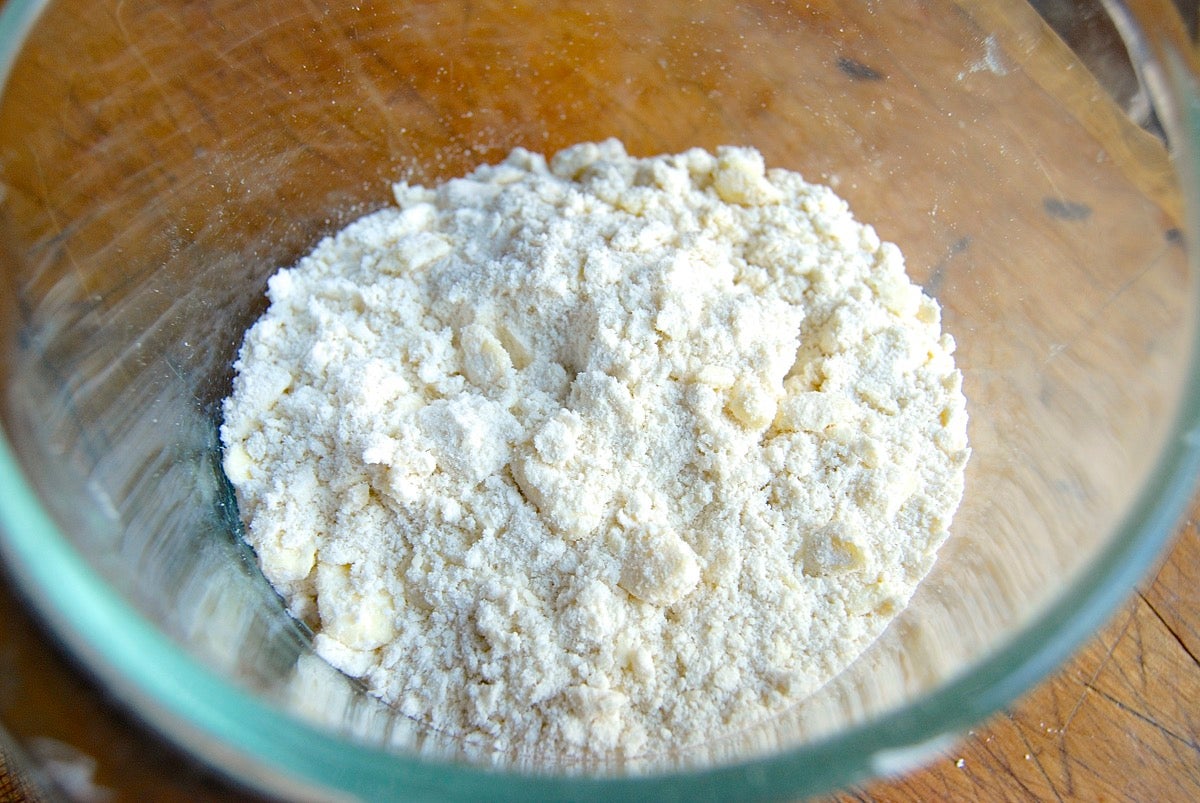
Whether one crust, two crusts, or one and a half, do the math and measure the crumbs.
Let the crumbs thaw for 30 minutes or so, until the butter chunks feel barely pliable in your fingers.
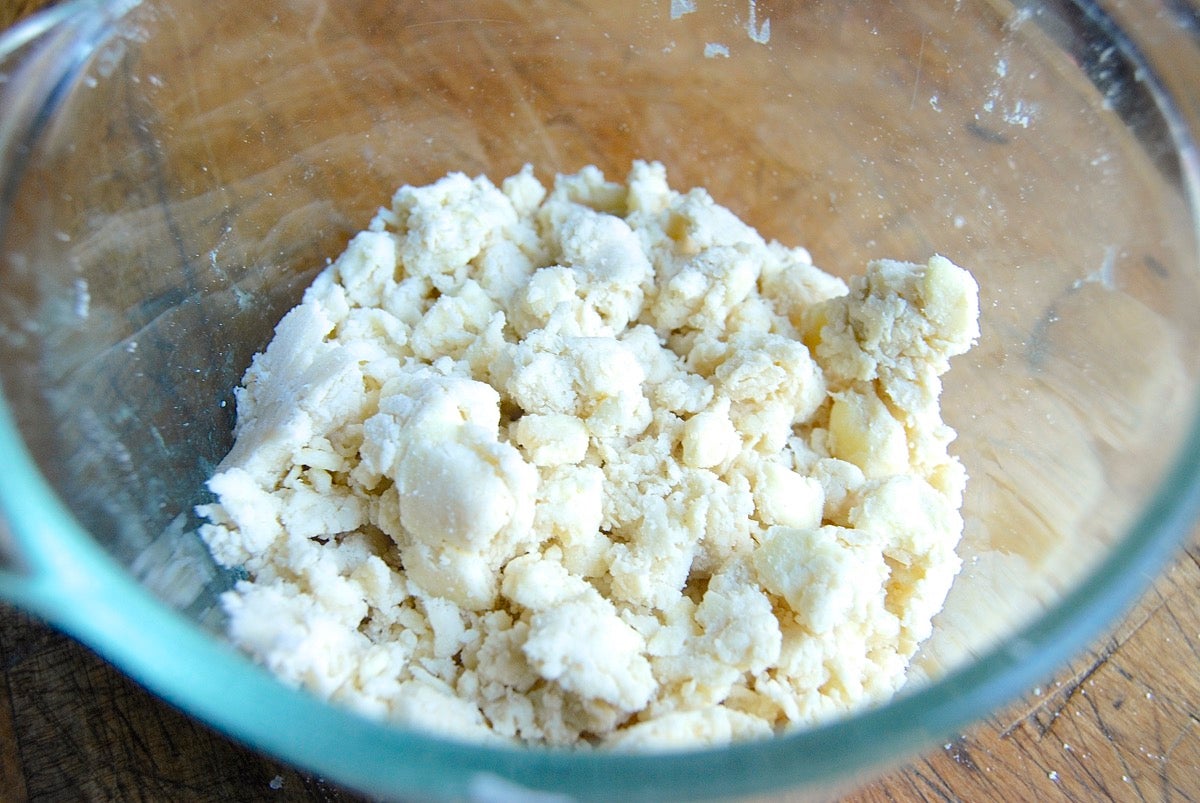
Mix to make a chunky mass.

All you're doing here is bringing the chunks together into one solid piece of dough.
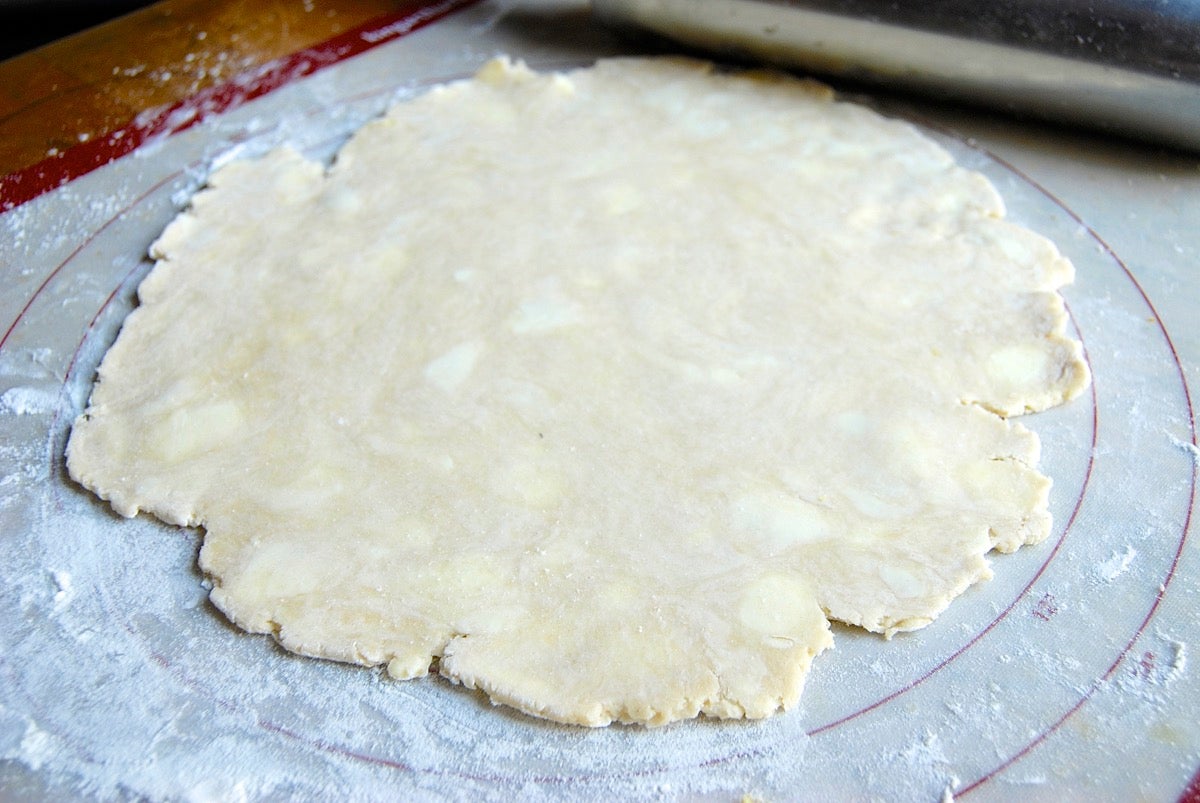
Notice those flattened chunks of cold butter? They're a good thing. The butter will emit steam as it melts in the oven, which helps "fluff" your crust's flaky layers.

Make a nice crimp, if you're so inclined.
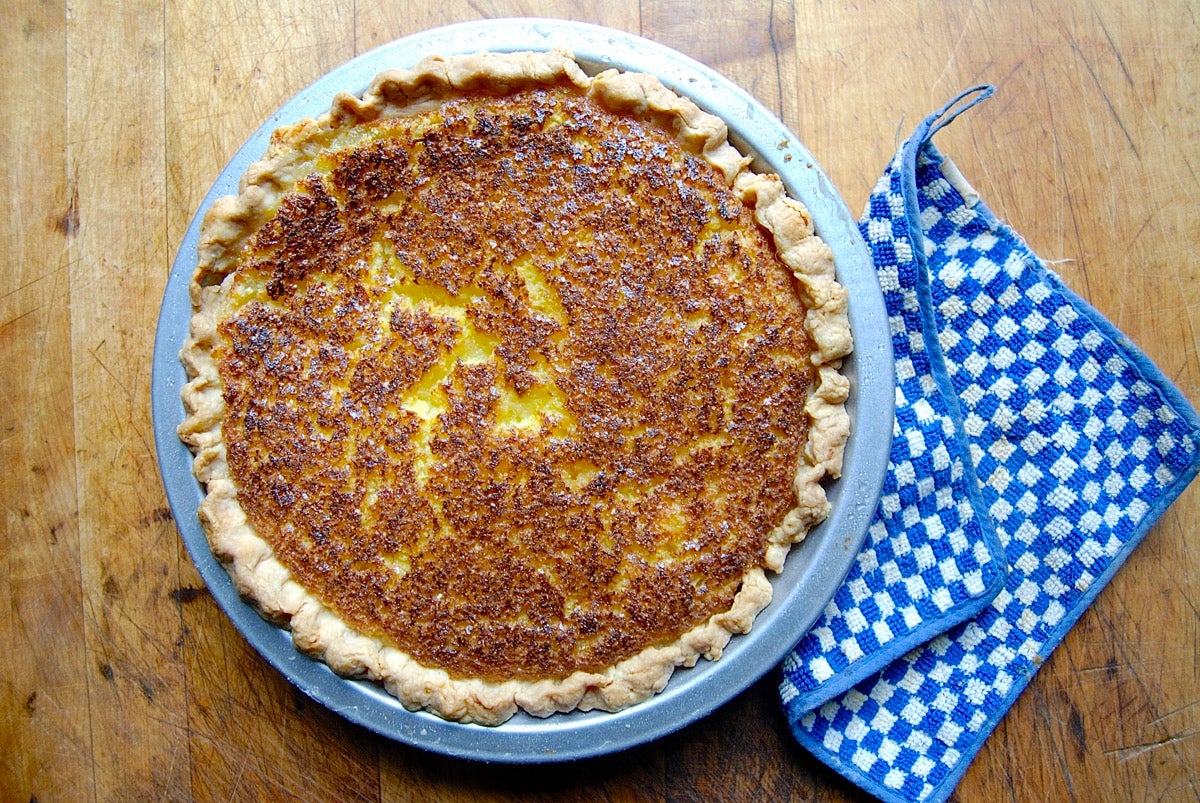
My current favorite is Lemon Chess.
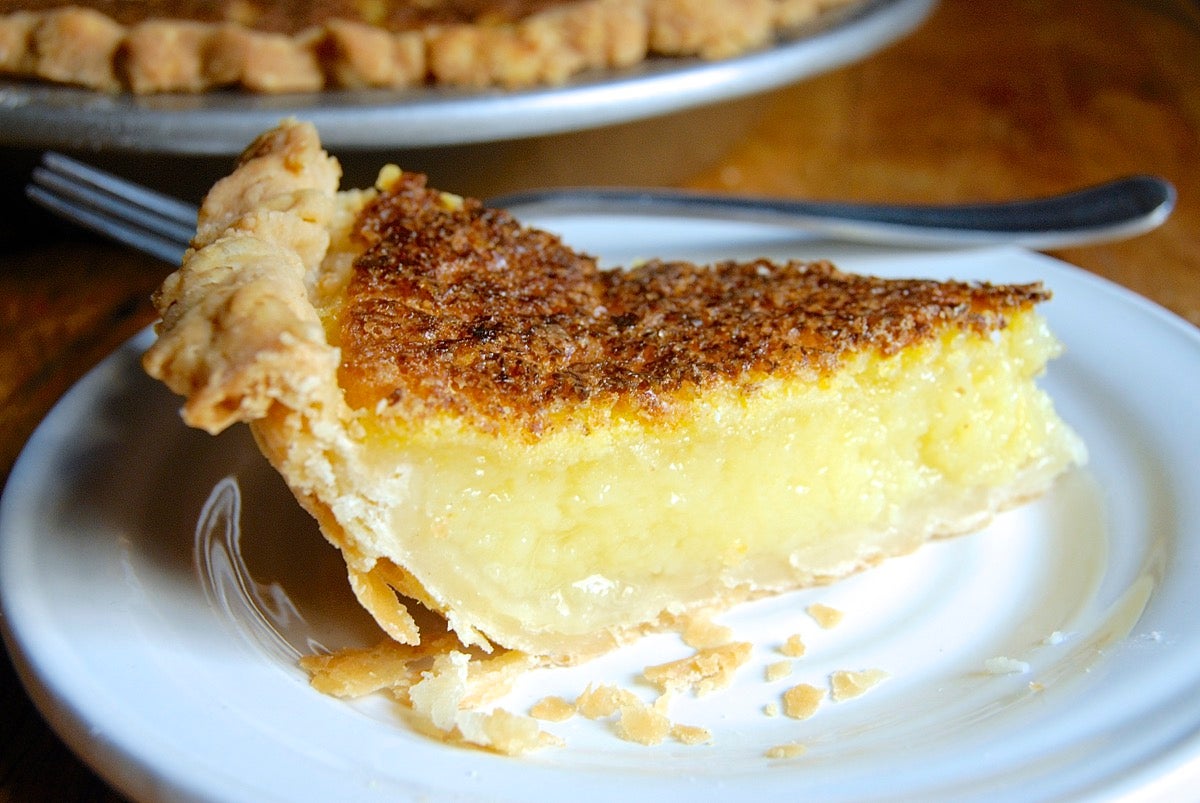
Notice those flakes. I'd say this shortcut technique yields excellent results without any downgrade in texture (or flavor).
Now, how long can you store pie crumbs in the freezer? Fairly indefinitely, though the longer they're frozen, the more chance they have both to absorb freezer odors, and for the fats to start to go off. I've also found that, starting about two weeks out, I need to add a touch more water than usual to bring the dough together — due to the drying effects inherent in freezing.
With pie season hard upon us, now's the time to try pie crumbs for make-ahead pie crust. Or maybe you have another old-fashioned pie trick up your sleeve? Share your favorite tips in the comments, below.
And oh, of course: If you have a favorite pie crust recipe and method you like, stick with it! I'm not out to convert you here; simply to offer yet another alternative if you're looking to try something new.
Or something old.
For detailed ingredient amounts for the crust demonstrated above, see our recipe for Classic Double Pie Crust.
And if you're looking for additional time-saving ways to use your freezer in the run-up to the holidays, check out our posts on freeze and bake dinner rolls, fruit pies, cookies, and more.

